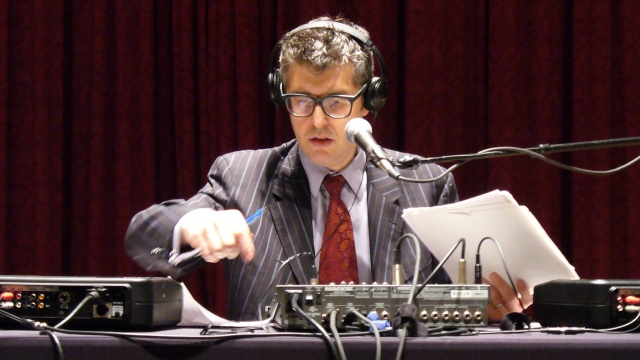
You know when people refer to someone as having a golden radio voice? Think of Ted Williams, whisked off the streets a few weeks back to become an overnight YouTube sensation, thanks to his spectacularly deep, authoritative pipes. Now forget about that predictable pacing, those affected inflections and other touchstones of conventional radio. NPR's This American Life and its earnest, nasally-voiced host Ira Glass routinely flip the radio script with brilliant storytelling, zeroing in on fascinating real-life tales that might often, at first glance, appear mundane.
BLUEPRINT FOR A RADIO REVIVAL
What a small team of four producers operating out of WBEZ Chicago sought to achieve 15 years ago was to capitalize on radio's biggest asset over other mediums: its intimacy. By having ordinary folk share their personal stories and then weaving together the narratives as one would a mini-movie – with characters, plot lines and dramatic arcs – they recognized radio's potential to deliver powerful stories.
Now, 1.7 million American listeners tune in to the show each week, and it consistently ranks as the most downloaded podcast south of the border. The show's format – with all stories produced for a given episode revolving around a central theme – has appealed to celebrated authors like David Sedaris, Dave Eggers and Michael Chabon, who've all contributed stories. Beyond reinventing radio journalism, TAL's also made it damn cool to a new generation of listeners. And the show's thousands of Canadian fans were delighted to hear about a deal struck with CBC Radio One, as the public broadcaster began airing episodes of the award-winning program in early January.
“I feel like we're in an age of really wonderful non-fiction storytelling,” Glass tells me on the line from the show's New York offices. “A lot of people have been trying to tackle the question of how to do journalism that would have more feeling to it, and get at the truth of the world in a way that sidesteps the ‘reporterly' language of a newspaper or the traditional kind of writing in a magazine.”
VARIATIONS ON A THEME
Glass, who began working in public radio at the tender age of 19 and who was named best host in the country by TIME Magazine, remains inspired by the range of compelling stories he gets to sink his teeth into. “I find myself most fascinated with stories about people who invent some scheme and then try to make it happen. Just as fascinating are people with a terrible idea, who put everything on the line to make their terrible idea happen. For whatever reason, people running at dreams that fail seems particularly interesting to me.”
Fitting, then, that I reached Glass as he was working through the final edits of a piece about the Brooklyn Free School, where children aged 4 to 19 set all the rules and administer all the discipline (the show, entitled Kid Politics, aired January 14th). “Again, it's a case of somebody having an idea, and someone else saying, ‘okay, let's go with this and see how it works out!' ” When I ask Glass if that drive to follow one's wildest dreams is an inherently American quality, he chuckles before remarking that “in America, not only is this idea sold to us in our movies, TV shows and self-help books, but it's actually also a thought people have, not just a distant piece of propaganda. Normal people take it to heart, including myself. That's how I have my own radio show, you know? I have a lot of sympathy for that in my own life."
This American Life
Sundays at 11 p.m. | CBC Radio One
cbc.ca/thisamericanlife | thisamericanlife.org